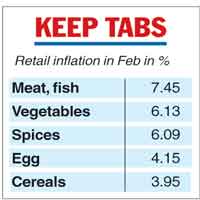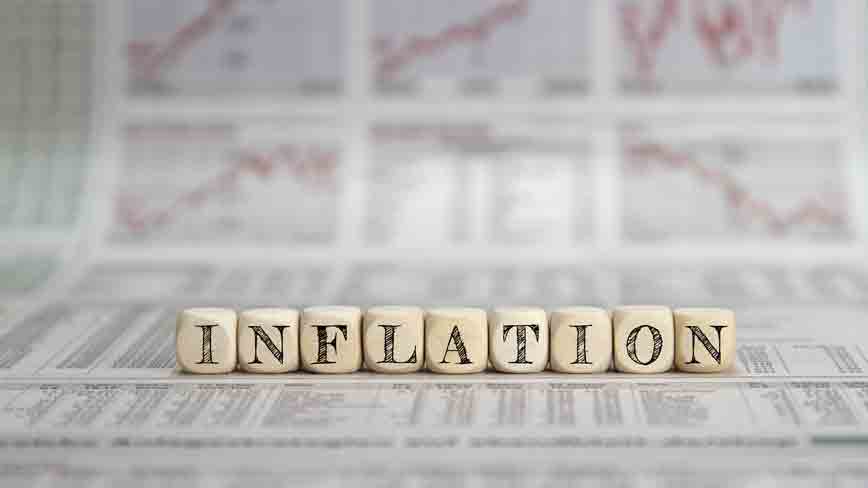Retail inflation rose to an eight-month high of 6.07 per cent in February and remained above the RBI’s comfort level for the second month in a row.
Wholesale price inflation — the data was also released on Monday — remained in double digits at 13.11 per cent (February) for the 11th consecutive month.
Analysts said inflationary management had become challenging now amid rising risks to growth.
The consumer price index (CPI) based retail inflation, which is taken into account by the Reserve Bank of India (RBI) while deciding its monetary policy, rose mainly because of costlier food items, according to the data released by the National Statistical Office (NSO).
The RBI has been mandated by the government to keep retail inflation at 4 per cent with a margin of 2 per cent on either side.
Core inflation, which strips out retail inflation on account of food and fuel, eased to 5.82 per cent in February from 5.85 per cent in the preceding month.
During February, while retail inflation for manufactured items accelerated to 9.84 per cent as producers passed on increasing input costs to consumers, food and fuel inflation eased to 8.19 per cent and 31.5 per cent, respectively.
Inflation pressure will rise when PSU refiners increase fuel prices, unchanged since November, which will mount pressure on the Reserve Bank of India to increase interest rates.

Madan Sabnavis, chief economist, Bank of Baroda, said “Three of the components: miscellaneous, fuel and lighting and clothing and footwear are above average. Within miscellaneous, it can be seen that household goods, health, transport and recreation are above 6 per cent with personal care being just a tad lower.
“These are the segments that are supposed to be driving demand in the economy and high inflation means that there will be push back to growth.”
Aditi Nayar, chief economist, Icra, said food and beverages inflation rose to a 15-month high in February, while the rising prices of edible oils are likely to pose a challenge.
She said the uncertainty stemming from the impact of the Russia-Ukraine conflict may prompt “another status quo RBI policy in April”.
Rajani Sinha, chief economist, Knight Frank India, said: “In February the inflationary pressure is largely witnessed by the households. Apart from the seasonal rise in vegetable prices, the price pressures in clothing, footwear and household goods continued to remain elevated.”
The scope of transmission of prices from the manufacturers to the consumers continues to remain elevated as the wholesale prices continue to spike, Sinha said.


